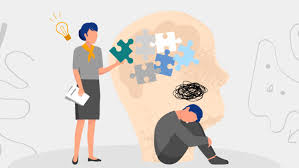
Attention Deficit Hyperactivity Disorder (ADHD), commonly associated with childhood, often persists into adulthood, affecting numerous individuals globally. Adult ADHD presents distinct challenges that can impact various aspects of life, from personal relationships to professional achievements. Recognizing and understanding the symptoms of adult ADHD is pivotal for effective management and treatment, which can significantly enhance the quality of life for those living with the condition.
Understanding Adult ADHD
Adult ADHD is marked by pronounced patterns of inattention, hyperactivity, and impulsivity, exceeding the typical behaviors seen at comparable developmental stages. Although it frequently originates in childhood, ADHD can continue into adulthood with symptoms that may differ from those in children. Acknowledging these symptoms is essential for successful management and enables individuals to lead organized and productive lives.
Identifying ADHD Symptoms in Adults
Persistent inattention is a primary indicator of adult ADHD, manifesting as difficulty sustaining focus, especially on tasks requiring ongoing mental effort. Adults with ADHD may struggle with organization, often misplacing items or overlooking appointments. Hyperactivity in adults can appear as restlessness or a constant need for movement, while symptoms can vary widely among individuals.
Impulsivity and Emotional Challenges
Impulsivity is another significant symptom, leading to rash decisions, interrupting conversations, or showing impatience. Emotional dysregulation is also prevalent, characterized by abrupt mood swings and challenges in managing stress. Adults with ADHD may experience intense emotions more frequently and struggle to recover from them.
ADHD's Impact on Daily Life
The manifestations of ADHD can profoundly affect daily life. Difficulties with time management and prioritization can result in underperformance at work or school. Social relationships may suffer due to misunderstandings or perceived inattentiveness. Moreover, adults with ADHD might battle low self-esteem, feeling overwhelmed or frustrated by their symptoms.
Diagnosing and Treating Adult ADHD
Diagnosing adult ADHD is complex, necessitating a thorough evaluation by healthcare professionals, often including psychological assessments and a review of personal history. Treatment typically comprises a combination of medication and psychotherapy, with behavioral strategies focusing on enhancing organizational skills, time management, and stress reduction.
Developing Coping Strategies
Formulating coping strategies is critical for managing adult ADHD. This may involve establishing structured routines, utilizing planners or reminders, and setting achievable goals. Support systems, such as family, friends, and support groups, are crucial, providing understanding, encouragement, and accountability.
Navigating Relationships and Workplace Dynamics
Adult ADHD can significantly influence interpersonal relationships, with misunderstandings stemming from forgetfulness or lack of attention during interactions. Open communication about the condition with partners and friends is vital, fostering understanding and patience. Relationship counseling can offer strategies to address ADHD-related challenges within relationships.
In the workplace, adults with ADHD may encounter unique challenges, such as difficulty concentrating, managing time, and staying organized, which can affect job performance. Seeking workplace accommodations, like a quiet workspace or flexible deadlines, is important. Employers and colleagues should be informed about the condition in a professional manner to ensure a supportive work environment.
Lifestyle Adjustments and Technological Support
Lifestyle modifications can substantially aid in managing ADHD symptoms. Regular exercise, a balanced diet, and sufficient sleep can markedly improve focus and emotional regulation. Mindfulness practices, like meditation or yoga, can also be beneficial in managing stress and enhancing concentration. Consistent routines and a structured environment can help mitigate the chaos often experienced by adults with ADHD.
Technology provides tools that assist adults with ADHD in symptom management. Apps designed for time management, reminders, and organization can be particularly helpful in tracking appointments, deadlines, and important tasks. Online support communities offer platforms for sharing experiences and coping strategies, providing a sense of belonging and understanding.
Concluding Thoughts
Adult ADHD is a multifaceted condition, but grasping its signs and symptoms is a crucial initial step. With accurate diagnosis and a blend of treatment approaches, individuals can effectively manage their symptoms. The right support and coping mechanisms empower adults with ADHD to lead fulfilling and productive lives, surmounting the obstacles presented by the condition. This comprehensive understanding of adult ADHD underscores the importance of early recognition, targeted management strategies, and the supportive role of technology and community in navigating the complexities of the disorder.




